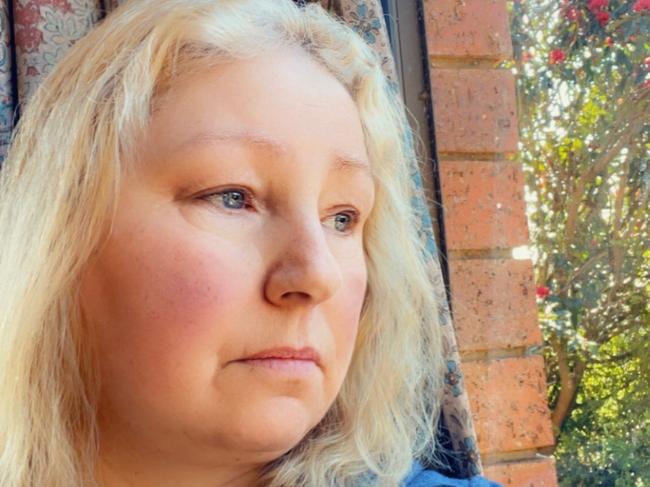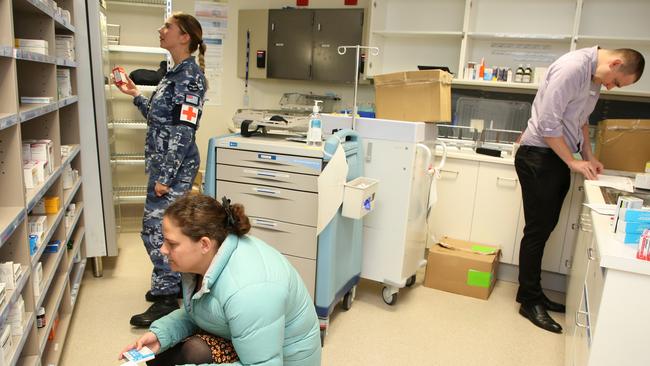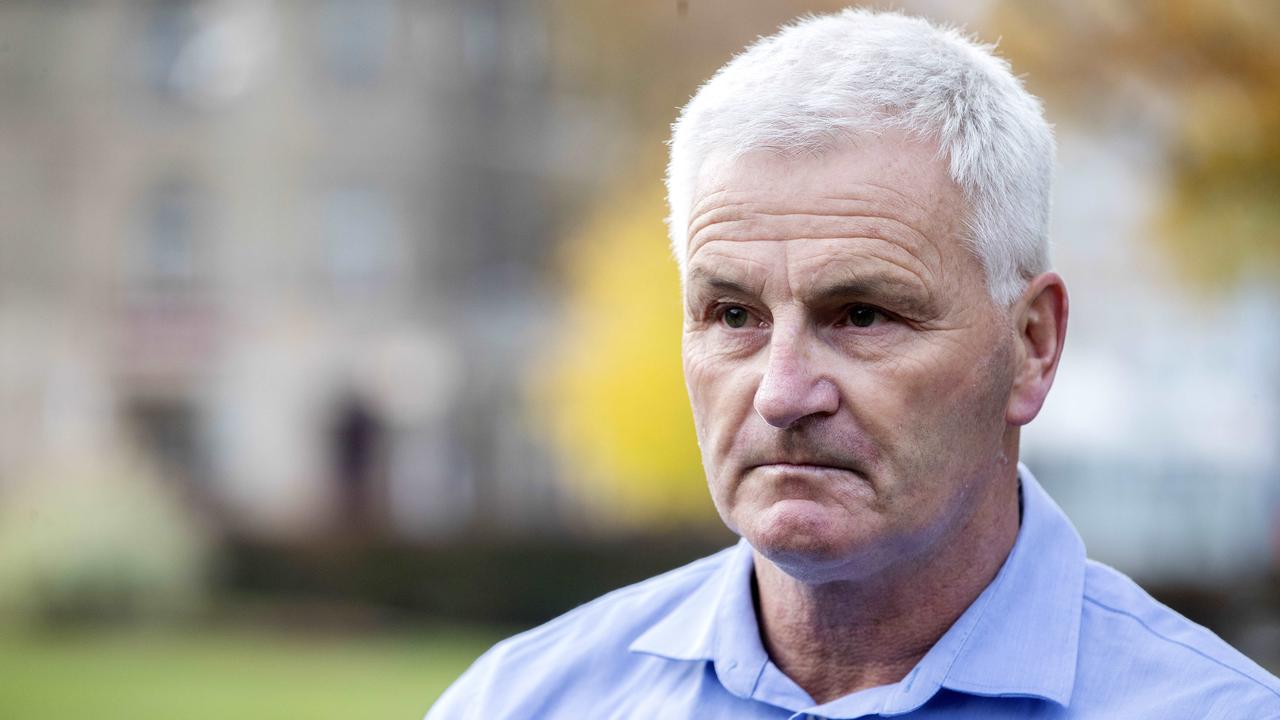Covid leaves a lasting mental and physical toll on victims
A North-West health worker who caught Covid last year remains “terrified” about what the future holds for long-Covid sufferers, as the government is urged to do more to help.
Coronavirus
Don't miss out on the headlines from Coronavirus. Followed categories will be added to My News.
ANNETTE Dodd has been unable to work since she got coronavirus nearly 18 months ago and is terrified if she gets it again, she may not survive.
Every day Ms Dodd, 52, a hospital medical attendant, lives with the legacy of Covid – ongoing heart issues, chronic fatigue, joint pain and constant ringing in her ears.
“The cardiologist told me I dodged a bullet the first time but he said there was no guarantee I would pull through if I get it again,” she said.
Ms Dodd has worked at Burnie’s North West Regional Hospital for 14 years and tested positive to Covid on April 11 last year.
“When public health rang me and told me my results, I just burst into tears, I was really scared,” she said.
Previously fit and healthy, she was Covid-positive for 57 days.
“Look, I am terrified about what the future holds for us long-Covid sufferers because, at the end of the day, nobody knows where this is going to leave us.
“There are already reports out about Parkinson’s disease and brain issues. I’ve already had some cognitive testing, which shows that my thought processes have been quite substantially reduced since Covid.”

After getting Covid, Ms Dodd had fluid around her heart which doctors said came from having the virus. She could not see a specialist for some time and still suffers heart palpitations.
“Because I was Covid-positive I couldn’t get any specialists to see me, but they started me on medication for heart failure just to keep me ticking over until I could see someone.”
The toll on her mental health has been as bad as the physical symptoms. She is seeing a psychologist and psychiatrist.
“I’ve just done a month inpatient program at our local private psychiatric unit,” she said.
“I’m just too scared to go back (to work). I can’t set foot in the hospital.
“I was having issues a few weeks back and my doctor was going to ring an ambulance for me (but) he knew that he couldn’t do it because they would take me to Burnie hospital and I just had to drive myself to the Mersey Hospital.”

Before Covid, Ms Dodd regularly travelled to Victoria to see her three grandchildren but now she doesn’t go out as much.
She is loath to talk about how unwell she feels, but when she does tell people who ask, she says they are shocked.
Ms Dodd has sought solace in a group of other healthcare workers who also are suffering from long-Covid.
“Probably that group is all that’s kept a few of us going these last few months.
“I was pleased to know I wasn’t on my own with this and this was not something just in my head.
“We start reading reports from overseas about what’s happening and you just think ‘oh my god, that’s exactly what I’m feeling’.
“I used to get out of bed at six o’clock in the morning but now I get up in the morning and get my partner sorted for work and then I sleep again for another couple of hours and I’ll be in bed again by nine o’clock (at night).”
Ms Dodd relies on her partner to help pay most of the bills because her workers’ compensation payments have dropped by 20 per cent.
“I’m losing a lot of money compared to what I would be if I was at work and 20 per cent of my wages is a lot to me.”
Ms Dodd wants Tasmanians to get vaccinated.
“It’s important for everyone to get vaccinated. I’m just terrified of getting it again.”
Sick workers plead for help
THE government is being urged to help Tasmanian healthcare workers who are still suffering the long-term effects of Covid.
More than 80 workers are believed to be receiving workers’ compensation payments after contracting Covid during the outbreak in the North-West last year.
Australian Nursing and Midwifery Federation secretary Emily Shepherd is helping a group of her members with long-Covid who have twice met Health Minister Jeremy Rockliff to discuss their ongoing recovery.

She said it was concerning that over time these healthcare workers would see reductions in their workers’ compensation given the long-term nature of debilitating health impacts.
“The individuals have felt at times they have been unfairly stigmatised due to being on workers’ compensation,” Ms Shepherd said.
“The reality is that all these healthcare workers put their own health on the line, and that of their families, during the North West Regional Hospital Covid outbreak and they are continuing to pay a very significant price, with their health having not returned to their pre-Covid state.
“We just don’t know how long it will take for members to recover, if they ever fully recover,” she said.
“It would be amazing if the government were to step in and supplement these members’ workers’ compensation payments and, if not, the commonwealth needs to offer support to the healthcare workers not just in Tasmania, but likely around the country who will be affected by this.”

Health and Community Services Union secretary Tim Jacobson said the long-Covid cases proved beyond doubt that “contrary to what some Tasmanians believe, Covid infections are not similar to the normal flu”.
“It can be debilitating and have long-term, significant effects,” Mr Jacobson said.
“Step-down provisions for workers who contract a disease or are injured have been a bone of contention between unions and government for many years.
“Why should a worker who loses their livelihood as a direct result of their employment be injured and penalised by the workers’ compensation scheme we have in Tasmania.
“Step-down provisions must be abolished, they are unfair and unnecessary.”
A government spokeswoman confirmed Mr Rockliff had twice met with affected staff.
“We understand that long-Covid can have a significant impact on the lives of those with this debilitating condition,” she said.
“We are also working with Primary Health Tasmania to develop a specific health pathway for people with long-Covid.”
The spokeswoman said the WorkCover Tasmania Board initiated a broad review of the workers’ compensation step-down provisions under the Workers Rehabilitation and Compensation Act 1988 on occupational groups across the public and private sectors.





